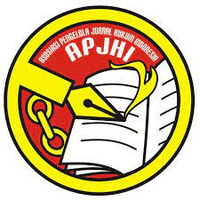collections_bookmark Focus and Scope
FOCUS AND SCOPE
Walisongo Law Review is a scientific journal published in April and October each year by the Law Studies Program at the Faculty of Sharia and Law, Universitas Islam Negeri (UIN) Walisongo, Semarang colaboration with Asosisasi Pengelola Program Studi Ilmu Hukum Perguruan Tinggi Keagamaan Islam Negeri (APPSIH-PTKIN).
This journal has specifications as a medium of publication and communication of legal science ideas derived from theoretical and analytical studies, as well as research results in the field of legal science. The editor hopes that writers, researchers and legal experts will contribute in this journal.
create_new_folder Section Policies
Articles
device_hub Peer Review Process
Walisongo Law Review (Walrev) is a journal that implements the peer review process. All articles submitted to this journal will be reviewed in a closed (blind review) by a minimum of two reviewers (associate editor). The response from the reviewer will be the consideration for the editor (editorial board) to determine whether an article can be published (accepted), published if revised or discarded (rejected). The returned articles must be upgraded by the authors. After the authors make improvements in accordance with feedback from the reviewer, the author should resend (re-submit) and will be reviewed again. To avoid plagiarism all articles submitted to Walisongo Law Review (Walrev) will be checked with anti-plagiarism software. The editor's final decision on the manuscript is decided by the Editor in Chief.
event_note Publication Frequency
Journal of Walisongo Law Review (Walrev) is published twice a year (April and Oktober)
copyright Open Access Policy
This journal provides immediate open access to its content on the principle that making research freely available to the public supports a greater global exchange of knowledge.
unarchive Archiving
This journal utilizes the LOCKSS system to create a distributed archiving system among participating libraries and permits those libraries to create permanent archives of the journal for purposes of preservation and restoration. More...







